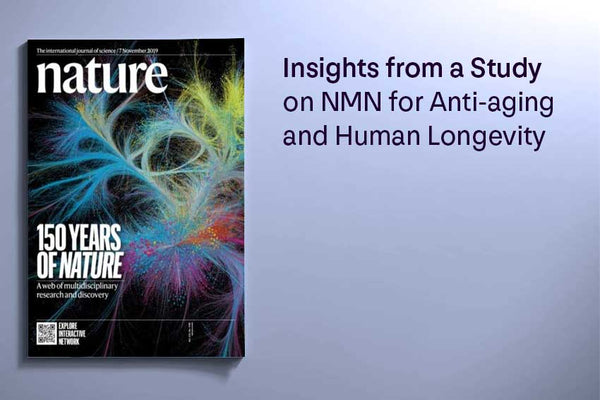
A study published in the renowned 'Scientific Reports' journal has confirmed the safety of β-Nicotinamide Mononucleotide (β-NMN) in anti-aging treatments. β-NMN is a precursor of Nicotinamide Adenine Dinucleotide (NAD+), an essential coenzyme involved in metabolic activity. Declining levels of NAD+ are linked to age-related diseases and metabolic abnormalities. The study can be found here.
Increasing levels of NAD+ by supplementing with NMN has been shown to lessen the impact of these conditions through in-vitro and in-vivo studies. Multiple trials have been conducted to establish the safety and effectiveness of NMN on human subjects, but earlier studies did not examine the safety of administering daily doses of 1000mg or more.
For that reason, this study adopted a randomized, double-blind, placebo-controlled sample of 31 healthy adults, both men, and women aged between 20-65 years. The researchers administered an oral dose of 1250mg of NMN daily for up to 4 weeks. Vital signs, hematological and biochemical urine analyses, and body compositions were monitored consistently.
Results from these trials revealed no significant changes exceeding the usual physiological variations observed in multiple clinical parameters, including body composition, anthropometry, hematological, and biochemical analyses. In addition, no severe adverse events were reported throughout the study period. Thus, the study posits that a daily oral dose of β-NMN is safe and well-tolerated in healthy adults for up to 4 weeks.
The research aligns with recent studies that show mammals experience a decrease in NAD+ levels with age, leading to reduced muscle strength, endurance, and altered Ca2+ homeostasis.
